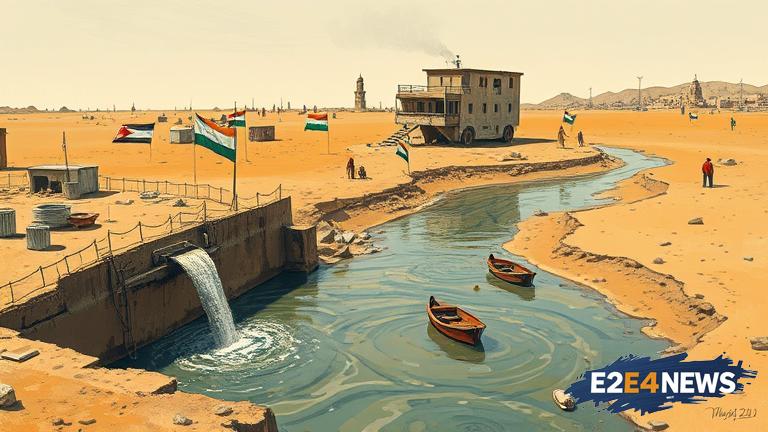The Gaza Strip is facing a severe water crisis, with the majority of its population lacking access to clean drinking water. This has led to a significant increase in cases of acute flaccid paralysis, a condition that can cause paralysis and even death. The crisis has been exacerbated by Israel’s blockade of the Gaza Strip, which has limited the entry of essential goods and materials. The blockade has also restricted the movement of people, making it difficult for those in need of medical attention to receive it. The Gaza water crisis is a result of years of neglect and underinvestment in the territory’s water infrastructure. The situation has been further complicated by the ongoing conflict between Israel and Hamas, which has led to the destruction of water treatment plants and other critical infrastructure. The lack of clean drinking water has led to the spread of waterborne diseases, including cholera and typhoid fever. The rise in acute flaccid paralysis cases has been particularly alarming, with many children affected by the condition. The World Health Organization has warned of a potential outbreak of the disease, which could have devastating consequences for the population. The Israeli government has been criticized for its role in the crisis, with many accusing it of deliberately restricting the entry of goods and materials into the Gaza Strip. The blockade has been in place since 2007, and has had a devastating impact on the territory’s economy and infrastructure. The Gaza water crisis is just one example of the many challenges facing the territory, which has been under Israeli occupation since 1967. The international community has called for an end to the blockade and for Israel to allow the entry of essential goods and materials into the Gaza Strip. The United Nations has warned of a potential humanitarian crisis in the territory, with many people at risk of starvation and disease. The Gaza water crisis is a complex issue, with many factors contributing to the problem. The lack of investment in the territory’s water infrastructure, combined with the ongoing conflict and blockade, has created a perfect storm of conditions that have led to the crisis. The rise in acute flaccid paralysis cases is just one example of the many health problems facing the population. The World Health Organization has called for urgent action to address the crisis, including the provision of clean drinking water and medical supplies. The international community must take action to address the Gaza water crisis and to hold Israel accountable for its role in the crisis. The situation in Gaza is a humanitarian crisis, and it requires a humanitarian response. The provision of clean drinking water and medical supplies is essential to preventing the spread of disease and to protecting the health and wellbeing of the population. The Gaza water crisis is a reminder of the need for a peaceful resolution to the conflict between Israel and the Palestinians. The ongoing occupation and blockade of the Gaza Strip is unsustainable and must be brought to an end. The international community must work towards a two-state solution, with Israel and Palestine living side by side in peace and security. The Gaza water crisis is a wake-up call for the international community, and it requires immediate attention and action. The situation in Gaza is a humanitarian crisis, and it demands a humanitarian response. The world cannot stand by and watch as the people of Gaza suffer from a lack of clean drinking water and medical supplies. The Gaza water crisis is a complex issue, but it is not insurmountable. With the right combination of investment, infrastructure, and international support, it is possible to address the crisis and to provide the people of Gaza with the clean drinking water and medical supplies they need. The time for action is now, and the international community must come together to address the Gaza water crisis and to bring an end to the suffering of the Palestinian people.




